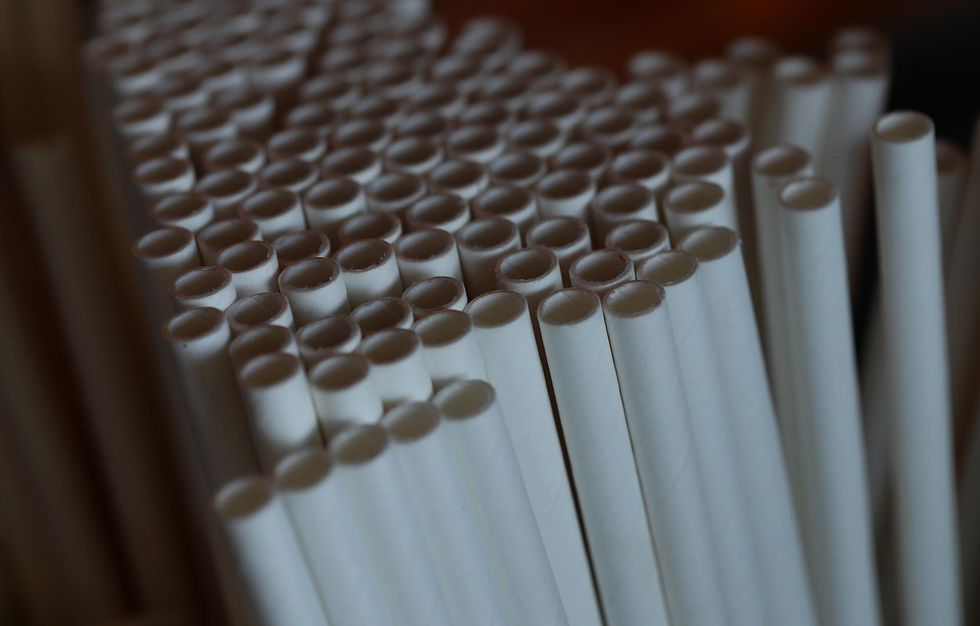
Seattle has banned restaurants from using plastic straws and utensils. after a new ordinance took effect Sunday. (Justin Sullivan/Getty Images)

Customers in Seattle will no longer be able to use plastic straws, utensils, or cups when they dine out, after a new ordinance took effect Sunday in the Pacific Northwest city, the Seattle Times reported.
The ban, which had been in the works for more than 10 years, aims to reduce the negative environmental impact of the millions of plastic straws used every month in the city.
Restaurants will be tasked with finding alternatives, such as compostable paper or plastic utensils, and could face fines up to $250 for noncompliance.
About 10 years ago, Seattle banned all noncompostable or nonrecyclable one-time-use food service items, but made an exception for straws and utensils because of a lack of viable alternatives at the time.
Last September, the Lonely Whale Foundation started a "Strawless in Seattle" campaign, which reportedly prevented the use of 2.3 million plastic straws in just one month.
Now, there are options. Restaurants, grocery stores, food trucks, and cafeterias can now switch to compostable paper or plastic straws. The paper straws are preferred to the compostable plastic ones.
So, as of Sunday, businesses were expected to have used up their inventories of plastic utensils and straws, although establishments that needed more time to comply are able to work with the city's Public Utilities department. Food service businesses can make flexible plastic straws available to people who need them for medical reasons.
According to the Strawless Ocean campaign, straws can ruin loads of recycling because most of them aren't heavy enough to make it through industrial recycling sorters. They also are easily wind-blown, which means they can end up polluting the ocean.
The organization claims that 71 percent of seabirds and 30 percent of turtles have plastic in their stomach, something that can significantly increase their mortality rate.
(H/T: The Washington Post)